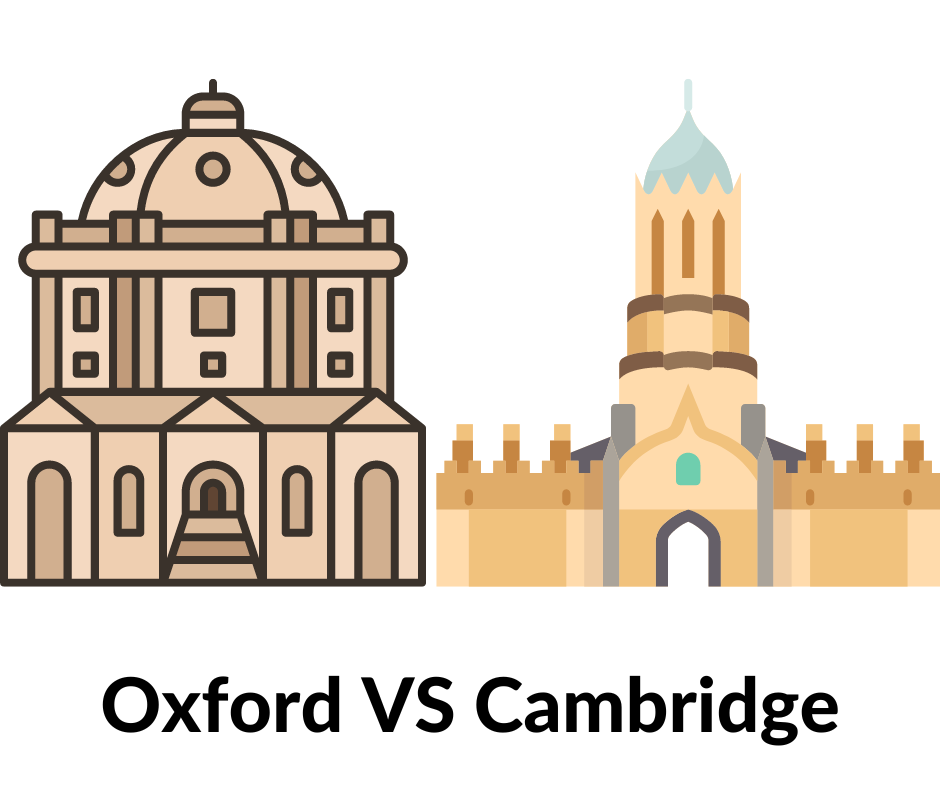What is Studying at Oxbridge Like?
- Oxford and Cambridge are known for their traditional Medicine course where you will partake in three years of pre-clinical teaching before going on three years of clinical teaching and placements.
- Oxford and Cambridge also offer intercalated degrees which gives you the opportunity to receive a BA after the first 3 years of your degree.
- Both universities are organised into individual colleges that make up mini campuses. You would either apply to one of the colleges from either Oxford or Cambridge or submit an open application where you may be assigned to a college.
- Oxford and Cambridge also teach their students through small group tutorials rather than through larger classes and seminars.
Is Oxbridge for You?
Oxford and Cambridge are known for their academic rigour, excellent research facilities and challenging learning environments. Both universities expect their students to fully engage in academically demanding situations as well as be able to reflect and adapt to different learning techniques.
Furthermore, Oxford and Cambridge provide extensive three years of learning the foundational sciences of Medicine before the clinical application at placement. This means that you would have very limited patient contact at the beginning of your medicine journey.
It is important to decide whether learning the basics and then applying your knowledge would be more suited for you than an integrated course. If you feel that you would thrive in this style of Medicine and would value small-group teaching, one of these institutes may be a good fit for you!
Is it Easier to Get into Oxford or Cambridge?
It is difficult to say which university is easier to get into as both Oxford and Cambridge have different entry requirements as well as different cohort sizes. Oxford has 28 colleges that offer medicine with around 159 students on average in a year’s cohort, whereas Cambridge has 31 colleges that offer Medicine with a much larger cohort of around 309 on average.
Similarly, Oxford historically required a higher BMAT score for applicants to be considered (whether that can give us a hint for their future exam expectations), however, it has lower A-level requirements than Cambridge.
Other factors to take into consideration are that Oxford interviews around 26% of its applicants but has a higher post-interview offer rate whilst Cambridge interviews around 70% of its applicants with a lower post-interview offer rate.
Both universities have challenging entry requirements so it is important to think about which course structure, intercalation options and city life you would prefer for your time at university.
Oxford vs Cambridge Medicine: Entry Requirements

All students applying to Oxford or Cambridge will be required to take Chemistry A-Level with a minimum of grade A achieved. In addition to this, another science (Biology, Physics, Mathematics or Further Mathematics) is needed.
- Oxford requires applicants to achieve A*AA
- Cambridge requires applicants to achieve A*A*A
The BMAT also used to be required to be sat in the year of application for both universities – but has now been replaced by the UCAT. We can’t yet give any estimates for their UCAT thresholds just yet but they’re likely to be competitive.
Cambridge has also been known to interview applicants with lower BMAT scores (which might be applicable to their UCAT scores too), so this might be of important consideration when choosing the university. You can find out more about the exact entry requirements for Cambridge and Oxford here.
Oxford vs Cambridge Medicine: Course Structure

Both universities offer a traditional 6-year Medicine course with three years of pre-clinical teaching followed by three years of clinical placements.
You will have to intercalate at both universities in the third year of the course and will receive a BA degree at the end of the three years. Students will either graduate from Oxford with a BM BCh degree or from Cambridge with an MB BChir.
Both Oxford and Cambridge also deliver their teaching through small-group tutorials and supervision rather than large-group seminars.
Cambridge does offer full body dissection throughout their course whilst Oxford only offers prosections. This is something to consider when deciding between the two universities.
Oxford vs Cambridge Medicine: Placements

Clinical attachments for both universities begin in Year 4 and run through till Year 6. During these three years, students will develop their clinical skills in areas of particular interest, explore various specialities and begin the transition to work-based settings.
- The two main placement sites for Medicine at Oxford are John Radcliffe Hospital and Churchill Hospital. Depending on the specialities, students may also be placed at surrounding hospitals in Oxford and other community-based sites.
- The main placement site for students at Cambridge is Addenbrookes Hospital, and students may then be placed in one of the seven regional hospitals around Cambridge and Hertfordshire.
Oxford vs Cambridge Medicine: Graduate Prospects

Around 94% of graduates from Oxford University go on to further study or to work 15 months after finishing their BM BCh degree. 97% of these became medical practitioners whilst the remaining 3% ended up in social science or public service.
Approximately 100% of graduates from Cambridge University have gone to further study or work within 15 months after finishing the MB BChir degree.
The average earnings for graduates from both universities one year after graduating is around £35,000 and this has been seen to increase up to £50,000 within five years after graduating from Medicine.
Further information on graduate prospects can be found here.
Oxford vs Cambridge Medicine: Student Life

Both Oxford and Cambridge have a variety of clubs and societies for students to immerse themselves in. These are an integral part of university life!
- Oxford has over 400 clubs and societies for students to partake in, ranging from academics to sports, arts and music, whilst Cambridge has nearly 1,000 clubs available to all students.
- The Medical Society (MedSoc) is also available for all medical students to join.
- Both universities also have formals, which are usually either dinners or balls, for their students to attend in their respective colleges. These are usually a great way for students to socialise and get to know their peers.
Oxford vs Cambridge Medicine: Cities

The city that you decide to live in is also an important consideration when choosing between the two universities. Both Oxford and Cambridge are relatively small cities (with Oxford being slightly bigger) however, they are very different from one another!
- Oxford is known to be the more lively and larger city of the two in terms of social and nightlife. The population is bigger at Oxford, and many would prefer this. However, it is further away from London and the city and campus life is not limited to students!
- Cambridge is the smaller and quieter city of the two but is much more student-oriented. The university makes up most of the city and is closer to London.
Ultimately, with the right information and guidance, you can make a well-informed decision that sets you on the path to a successful career in Medicine.
